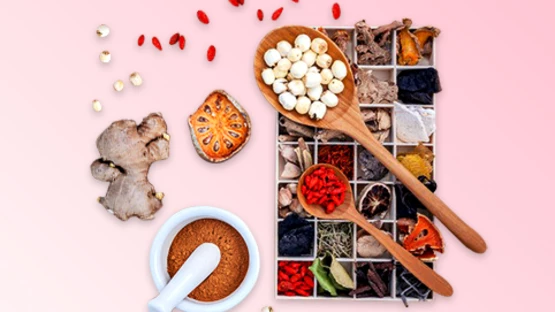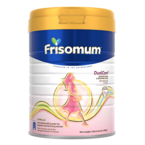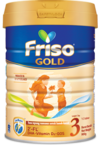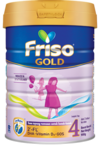
Keep fish wholesome for toddler porridge recipes
Keep fish wholesome for toddler porridge recipes read more

By definition, confinement is a post-pregnancy ritual that helps new mothers recover and recuperate after giving birth. It is a very important process as giving birth can take a toll on the female body. It usually involves rules, regulations, guidelines, and diet requirements based on traditional post-natal knowledge.
If you have always wondered what is the period of confinement after giving birth, it can go up to 44 days. The reason why there are actually multiple versions of confinement is simply that Malaysia is a cultural boiling pot. Below is a compilation of the three most popular confinement practices that Malaysians follow.
In the Malay culture, it is believed that a healthy womb will ensure that a woman stays radiant and alluring. The confinement period is also believed to be an after-birth care that helps mums restore their body figure, health and energy to pre-pregnancy levels. Mums are usually supported during this time by a traditional midwife, or even by their own mother or mother-in-law. Some of the practices that the community carried out during this time are:
Bengkung
The bengkung or traditional wrap is used to flatten the stomach and shrink the uterus. Each wrap has herbs and medicine that help this process.
Jamu
Jamu refers to dietary supplements that help new mums recover after childbirth. It is believed to boost energy levels; keep the body warm; expel excess fat and toxins; shrink all the swollen organs, muscles and veins; remove excess fluids; dispel wind, and slim down the tummy. This also includes a list of food that needs to be avoided during the time frame.
Bertungku
Bertungku is a traditional method that functions as a hot compress that is used to dissolve any residual blood clots in the womb. It is also used to break down fat and is made out of medicinal plants, leaves and a heated river stone wrapped in a cloth.
Within Chinese customs, the confinement period that comes after giving birth acts as a time for new mums to expel toxins, rejuvenate the body, and improve blood circulation. A mum's diet during this time is also very important. Herbal and fish soups, and tonics rich in nutrients are also a main part of the diet, as they rejuvenate the body. To maximise resting time for these new mums, some families hire a confinement nanny or confinement lady to help with the preparation of the meals and all child-related chores in the house.
Similar to Malay and Chinese after-birth care, the main purpose of the Indian confinement practices is to help the uterus get back to its normal size and heal any 'wounds'. Much of the dietary emphasis on preventing 'wind' is centred around cooking using ingredients and spices like garlic while avoiding 'cooling' foods. And it can get quite specific: for example, shark meat and chicken are considered good when cooked with herbs.
Indian culture believes that if these practices aren't done correctly, it could lead to health problems later on in the mother's life.
Did you know that there are places that offer professional postpartum care services? Commonly known as confinement centres, they house healthcare professionals that will take care of you from head to toe. Here is a summary of the perks of spending your confinement period at a confinement centre:
Boarding services for both mother and child
You can expect full-service lodging throughout the entire confinement period, and often with various levels of amenities based on the price package. The right confinement centre even has common facilities such as a play area and a multipurpose room for mums to socialise with other mums!
A full support group consisting of midwives and nurses
This is perhaps the most attractive perk, as you basically have a dedicated team of professionals that will assist you on a day-to-day basis as you recover from childbirth.
All the foods with the right nutrients
This is arguably the most important perk, as the food you consume directly affects your recovery. At a confinement centre, you will be pampered by chefs who know the ins and outs of confinement period food.
With so many restrictions in place, confinement can be a challenging time for many new mums. To compound the issue, most women also experience a depressed mood some days after giving birth. Not being allowed to use the fan or air conditioning in a tropical country is unimaginable for most modern mums. It helps to remember that these restrictions and feelings are often temporary and will pass soon enough, and the motivation for confinement comes from a good place. As a general guideline, it is important to balance familial harmony, obligation, and beliefs while applying what is actually good for you and your child.
For starters, bathing and washing hair helps with your personal hygiene and makes it more bearable for everyone around you. Exercise is a good way to boost your mood and overall health, which helps alleviate some of that confinement stress. Drinking plenty of liquid is important, as the kidneys will produce more urine to remove the excess fluid accumulated during pregnancy. Where possible, do some research for non-prohibited activities that improve your wellbeing. For instance, postpartum massage helps with pain relief, stress reduction, and relaxation (if you had a C-section in the hospital, please check with your doctor). Or experiment with non-taboo fruits and find your new favourite.
What's good for your physical and mental health is also good for your child, and a balanced diet is especially important if you're breastfeeding.
To address the specific needs of mums-to-be, maternal milk is often recommended as it helps balance both your and your child’s nutritional needs safely. We have formulated Friso® Gold Mum with both mum and child in mind, and its unique Dual Care+ formula supports you on your pregnancy journey. Some of the vital nutrients that Friso® Gold Mum provides you with include:
Vitamin B12 - Needed for red blood cell production and the healthy functioning of the nervous system3.
Folic Acid - Folic acid is essential for growth and division of cells. Folate plays a role in the formation of red blood cells. Folate helps to maintain the growth and development of the foetus4.
Iodine - Essential for the formation of thyroid hormones, which supports brain development5.
Vitamin D - Vitamin D is necessary for the absorption and utilisation of calcium and phosphorus1.
Calcium - Helps in the normal growth and development of bones and teeth2.
Low glycemic index - The glycaemic index (GI) is a rating system for foods containing carbohydrates. It shows how quickly food affects your blood sugar (glucose) level when eaten on its own. The low glycemic index (GI) could help the mother avoid being overweight during pregnancy.
When you consider pregnancy milk powder, it is also best to consider the origins of the milk, the process of manufacturing, nutrient content as well as one which helps you control weight gain during pregnancy. Friso® Gold Mum preserves the natural nutrients of the milk to give you what you need in your pregnancy journey. Now that you are aware of the importance of maternal milk/susu, check out what Friso® Gold Mum has to offer now!


